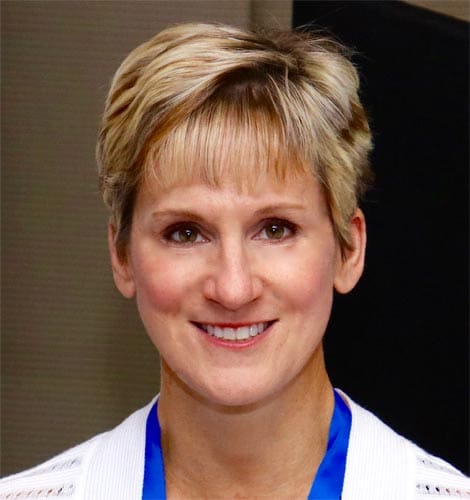The world’s need for technical standards has never been greater with the rapid rate of technological advancements and evolution coupled with urgent global challenges.
Technology standards establish specifications and procedures designed to maximize the reliability of the materials, products, methods, and/or services people use every day. They provide frameworks for raising safety and environmental performance, and they help enable interoperability among heterogeneous devices and systems. So people can use their preferred devices to send text messages and track their health vitals through a smartwatch.
In short, standards help make life simpler and increase the reliability and effectiveness of many of the goods and services we interact with daily.
Why are Standards Important for Governments?
What may be less known about standards is the role they play in supporting critical industry sectors that enable national economic security and growth, their complementary role in regulation, how they help inform national policies, influence trade, and the key role they have in procurement and operations.
Standards create ecosystems that promote economies of scale and healthy competition and provide leadership in socio-technical areas, such as environmental sustainability or ethical value-based design. That is why they are important to governmental bodies around the globe as they explore and establish policies and regulations, and address local and global challenges such as data governance and privacy, security, climate change, and the impact of rapid technological advances on citizens.
Added to this landscape is the complexity of the standardization ecosystem, with various standards developing organizations (SDOs) developing standards in ever-increasing inter-related spaces, such as the next generation of transportation and mobility, connectivity, cross-vertical use of artificial intelligence (AI), cybersecurity, data governance, and more.
It can be challenging for governments to have access to technical experts, best practices, information, tools, and other resources needed to help them understand the standardization landscape and navigate various issues and opportunities as part of their priorities and functions.
This is one driver of why the IEEE Standards Association (IEEE SA) established the IEEE Government Engagement Program on Standards (IEEE GEPS), as overall global standards are critical instruments in innovation, trade, and public policy areas.
Another level of complexity government bodies face is that standards are developed by several types of standards developing bodies from around the globe. In general, there are bodies with a geographic designation that are usually categorized as international, regional, and national standards bodies that typically function under a nation-centric standardization approach where governments, or bodies closely coupled to government, set or mandate standards. And there are those with a global technical or industry designation that include state-independent standards developing bodies, such as IEEE, with a globally open participation mode. Several professional and technical organizations function in such a decentralized, pluralistic, and industry-led manner, and typically do not involve national representation, being thus exempt from state intervention.
It is important to IEEE that we engage with government bodies to help them understand the direct participation model, and provide them an Official Observer seat on the IEEE SA Standards Board, where they gain a first-hand view into the IEEE globally open and “market-driven” paradigm and process of developing standards and have access to standardization and technical experts from industry, academia, governments, etc., participating in IEEE standards programs, but also participating in various national, regional and international bodies. IEEE GEPS provides a unique opportunity for capacity building and access to resources and connections.
IEEE SA Supports Governments through Connection and Resources
For governments and affiliated bodies looking to contribute to discussions at the intersection of technology, standards, and policy, IEEE SA offers the IEEE Government Engagement Program on Standards (GEPS), a bespoke program for government officials from around the world where they gain strategic insights into IEEE standardization.
IEEE GEPS helps participants to navigate the standardization ecosystem and identify standards beneficial for their nation’s priorities and advancements. It facilitates the global interoperability of devices and systems; provides a way to strengthen a country’s standards portfolio, especially when there are limited resources; and supports standards harmonization efforts.
Since global standards are critical instruments in innovation, trade, and public policy areas, IEEE SA created GEPS to provide a platform for governments from around the world to help increase their understanding of IEEE’s standards process and to facilitate input regarding government priorities into IEEE’s standardization ecosystem.
Specifically, the program aims to:
- Help governments better understand their standards needs
- Provide access to a rich source of standards-related information having to do with policymaking and regulation
- Keep governments up to date on IEEE’s latest initiatives, including providing inside looks at standards that are just beginning to be developed
- Increase governments’ understanding of the IEEE SA standards process, and how to best take advantage of it
- Receive input and guidance on aspects of the broader standardization ecosystem (e.g., on programs such as conformity assessment and certification, technical alliance management, industry connections, etc.)
Since its inception in 2017, IEEE GEPS currently counts over 50 participating government bodies from 35 countries across the world.
A Bespoke Program With Tailored Opportunities
Participation in GEPS is free of charge with no binding obligations, and individuals and their governments don’t have to be IEEE or IEEE SA members.
The program has both structured and tailored elements.
On the structured side, there are quarterly webinars given by world experts on topics that are of interest to GEPS participants. This provides a unique opportunity to hear IEEE’s view from experts on these topics.
Upon joining IEEE GEPS, participants are given Observer Status on the IEEE SA Standards Board and are invited to attend the IEEE SA Board of Governors meetings. GEPS participants who attend these meetings can gain useful insights into the mechanics of standards development processes and regional and other issues related to technology development. They can also gain a deep understanding of the rules and practices a modern standards development organization needs to function effectively.
On the tailored side, IEEE GEPS can connect participants to world technical experts on a bilateral, one-on-one basis to discuss individual issues of interest.
Learn More About GEPS
The IEEE Government Engagement Program on Standards (GEPS) helps government bodies meet their technology, standards, and policy ambitions. By engaging directly with experts, participating governments can help shape standards development at the local and global levels.
We invite you to learn more and join us as a way to help achieve your nation’s technical and societal goals.









